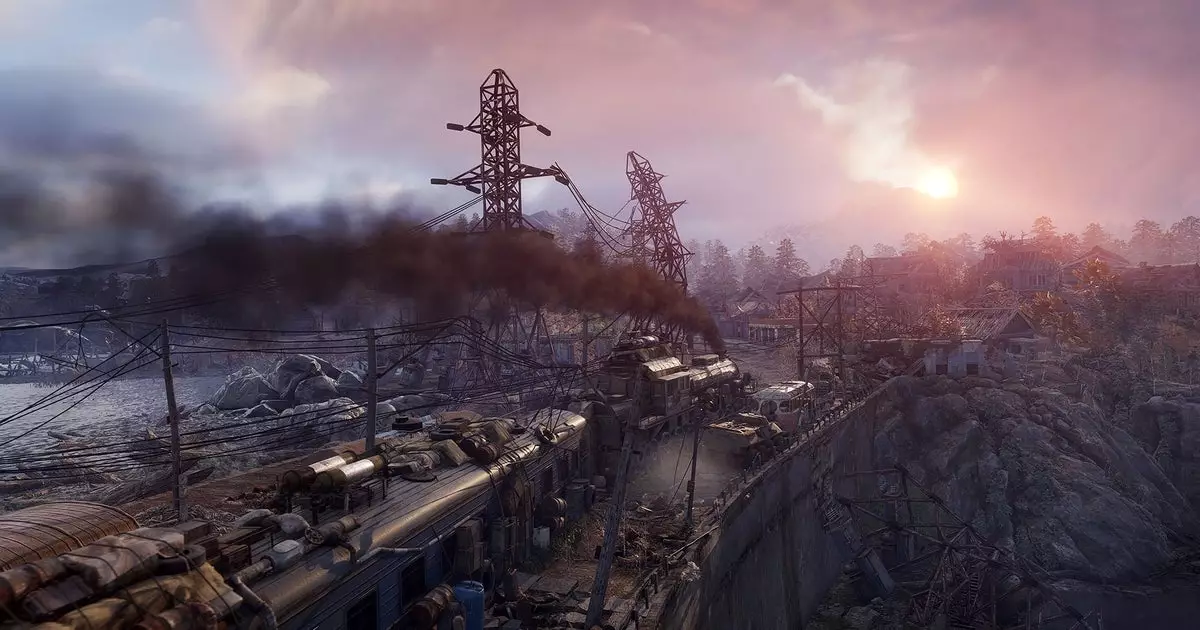This month marks a significant milestone in the gaming community, as Metro 2033 celebrates its fifteenth anniversary. This title, which emerged from the depths of post-apocalyptic Moscow, not only captured the imaginations of players but also set a benchmark for storytelling in the first-person shooter realm. In an age where many games seem to emphasize visual spectacle over narrative depth, Metro 2033 stood out due to its rich atmospheric immersion and hauntingly poignant themes. As we reflect on this journey, it’s crucial to appreciate how 4A Games has evolved alongside global events, particularly the recent turmoil in Ukraine.
A Darker Narrative Emerges
The upcoming release, hinted at as Metro 4, has sparked buzz among fans eager for a continuation of the series. However, what makes this next installment particularly intriguing is the profound impact the ongoing situation in Ukraine has had on its narrative direction. According to the studio, the invasion has reshaped their storytelling approach, leading to a more profound exploration of conflict, tyranny, and the deeply human struggles for freedom. It is a testament to the power of storytelling; that what was once a mere fiction can become an echoing reflection of current societal challenges. The very circumstances under which the studio operates spill into the game’s fabric, and this blend of personal and political engagement adds layers of gravity to the upcoming title.
Art As a Reflection of Life
4A Games’ recent blog post highlights the difficulties faced by the team, laden with imagery of missile strikes and air-raid sirens marking their reality. Such vivid realities, starkly opposed to the immersive escape offered by gaming, remind us that the line between art and life can blur dramatically, particularly for those creating within a context of conflict. “Art became life,” they state, encapsulating the notion that their ongoing struggles are not merely backstories but are woven intimately into the narrative they create. Here lies a poignant narrative: the evolution from a fictional apocalypse to one that bears visceral reality. The darker themes of the Metro saga seem poised to resonate more closely with players who, in grappling with their own worlds and struggles, may find connection in these troubling times.
Collaboration with Ideological Roots
Dmitry Glukhovsky, the original architect of the Metro saga, remains a pivotal figure in this journey. His voice serves as both a narrative guide and social commentator, grounding the game in its fiercely anti-war and political ethos. As an artist and activist, Glukhovsky’s ideals play a crucial role in shaping the series’ ongoing narrative arc. Despite his absence due to political persecution, his collaboration with 4A Games ensures that the franchise retains its critical lens on power struggles and personal freedoms. The studio’s commitment to continuing this thematic exploration is not only admirable but necessary in times when many wish to turn away from the harsh realities of our world.
In navigating through the evolution of the Metro series, particularly in light of modern adversity, we see a unique narrative unfolding—one that is not merely influenced by external circumstances but is also strengthened by them. The synthesis of art and the harsh truths of life creates a richer tapestry for storytelling, one that is sure to resonate deeply as fans await the next installment.

